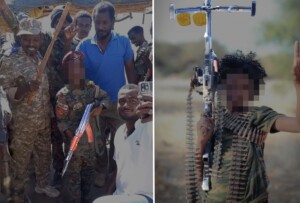Journalists beaten, detained for covering Sudan uprising
The National Intelligence and Security Services (NISS) detained 28 journalists for several hours ahead of a planned sit-in to protest the pre-publication censorship on Sudanese newspapers on Monday.
 Protesting journalists in Sudan in January (file photo)
Protesting journalists in Sudan in January (file photo)
The National Intelligence and Security Services (NISS) detained 28 journalists for several hours, ahead of a planned sit-in to protest the pre-publication censorship on Sudanese newspapers on Monday.
The sit-in was planned to be held in front of the headquarters of the security department in El Mak Nimir Street in downtown Khartoum. The crowd would present a memorandum against the security service’s repeated confiscation and prevention of publication of El Jareeda and El Baath newspapers.
The NISS demands newspapers remove any news articles about the ongoing demonstrations in Sudan, as well as any columns about the events that have been taking place in Khartoum, cities and towns across Sudan in the past four weeks.
El Jareeda reporter Lubna Abdallah told Radio Dabanga that a NISS force surrounded their building since early Monday morning. “They started detaining journalists as they left the building on their way to carry out the silent sit-in in front of the media department of the NISS,” she said.
The editor-in-chief and publisher of El Jareeda were arrested with a large number of colleagues, including journalists from other newspapers who arrived to support the sit-in.
Abdallah said that the press is not a criminal. “We work with high professionalism for El Jareeda newspaper and in accordance with the Constitution and the law, without violation, and we truthfully cover what is happening in the street.
“Our only crime is that we work professionally and impartially and communicate the voice of the citizens and the officials.”
Abuses
NISS agents beat journalist Mohamed Abdelmajid during his detention following the peaceful march in Khartoum Bahri on Sunday and released him after hours of intense questioning.
Abdelmajid was banned from writing for El Intibaha daily by the security service, and from the popular sports newspaper Goan two weeks ago, against the background of articles in which he criticised the regime.
Journalists Mohamed Salman and Aisha El Samani were also beaten, with batons, and whips, while covering the march in Khartoum North on Sunday. Salman told this station that masked men in civilian clothes took him from a vehicle. They accused him of filming the demonstrations.
“There were large numbers of security officers brutally beating you on every side,” various journalists report
“The masked men assaulted me from every direction, but they did not find a phone on me,” he explained. “The march was massive and spread in the streets and districts, with a heavy presence of groups of security forces. Most of them were masked and wore civilian clothes.”
Aisha El Samani said that she and others were severely beaten by the security service during their coverage of the march.
“We were at the central bus station at El Khatimiya Street where the security services set up an ambush there for the demonstrators. Suddenly they fired tear gas and assaulted us, and brutally beat a number of youths,” she told Radio Dabanga.
Yousef El Jalal, a journalist who was also beaten during his coverage of the march in Khartoum North on Sunday, told Radio Dabanga that the daily repression against the press constitutes a serious violation of the Constitution.
“This comes at a time when the security service points to the Charter of Honour governing the media work in Sudan,” says El Jalal, who was also suspended from his work for a Sudanese channel. “But this clearly shows that this charter is not equal to the price of the ink in which it was written.”
The Charter of Honour was signed in November by editors-in-chief of Sudanese newspapers and the NISS, stipulating that the security apparatus would not interfere in the publication policies of newspapers and abolish censorship, including pre-censorship.
Journalist Bahram Abdelmunim was among the 28 journalists detained by the NISS. He reports to have seen mistreatment of detainees while they were in the detention centre near the Shendi bus station in Khartoum North in the evening.
“NISS members […] forced them to stand on the wall without speaking, amid a stream of verbal abuses. Me and fellow journalist saw through the window on the first-floor side the torture of the detainees in the outer garden without hearing screams, begging or groans, because of the beatings,” Abdelmunim told Radio Dabanga in an interview.
Front-line
The Journalists Association for Human Rights (JAHR) denounced the security service’s attacks on journalists covering the peaceful protests, the continued pre-publication censorship of newspapers, the confiscations, and the prolonged detention of journalists Kamal Karrar from El Midan newspaper, mouthpiece of the Communist Party of Sudan, Ismail Bilal, who is a news reporter for the Northern State TV Channel, Darfuri journalist Omar Juma, and Ageel Naeem, without providing any explanation.
Feisal El Bagir, head of the Association, told this station that he expected more repression of the media and journalists today and in the coming days. “Sudanese journalists are now in the front-line of the revolution.”











 and then
and then